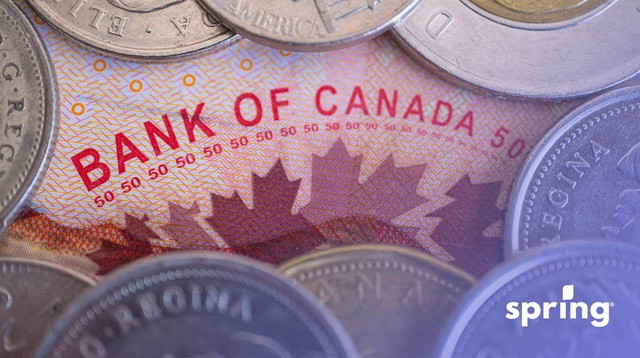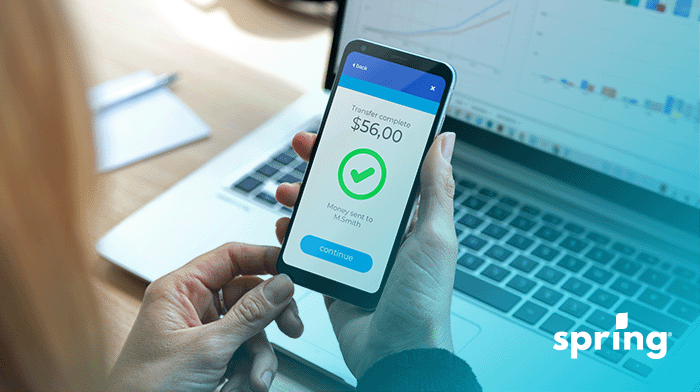With that in mind, though, what exactly does NSF stand for? Well, NSF stands for non-sufficient funds. It can also be referred to as insufficient funds. While this is something we don’t want to happen, unfortunately, it does. However, there are some things that you can do to help avoid NSF fees.
What Are NSF Fees?
Non-sufficient funds fees are fees the bank charges when an amount is being withdrawn from your account that drops the balance below zero into a negative balance. This happens when you just don’t quite have the funds to cover your bills. Not all banks charge NSF fees, though. Some will choose to approve the transaction and just charge you an overdraft fee.
These overdraft fees are much smaller and usually around $5. The average NSF fee is anywhere between $45 and $48. You can check your account statement daily to verify that you have the funds available to avoid NSF fees. However, it can take 1 or 2 business days for an NSF fee to show up on your account statement.
How They Work
While it is common for financial institutions to charge NSF fees, it usually isn’t their first option. Usually, they first pull from other linked accounts like savings accounts, not just your chequing accounts, if there isn’t enough money in your chequing account.
If that is enough to cover transactions, then you won’t have the NSF fee charged at all. Often, if you have enough to cover a portion of the bill, that’s when they’ll charge an overdraft fee on the portion the bank covers.
It’s important to keep in mind that banks only do this for preauthorized electronic payments and bounced cheques. ATM withdrawals and debit card transactions will be declined if there aren’t enough funds in the account.
How to Avoid NSF Fees
While NSF fees do happen, there are some things you can do to help avoid them. Many of these suggestions are not just helpful with NSF fees; they help you prioritize your funds and avoid missed payments.
Overdraft Protection
Depending on your financial institution, you could be eligible for overdraft protection. Overdrafts are essentially lines of credit that you can use. They’re attached to your bank account and allow the funds to be withdrawn even after your account is empty. You do have to pay interest on these, but these fees usually end up being relatively small.
Low Balance Alerts
In order to keep track of your finances and keep the funds that you need, it’s important to keep an eye on your spending. You can set alerts from your account to let you know when your chequing account balance has dropped under a certain amount, which allows you to keep an eye on the funds without actually physically checking your account all the time.
Prepaid Cards
If you use prepaid cards, then it’s impossible to get NSF fees. The only charges that can be made on prepaid cards are if you have enough funds in the account. The funds that are put into these accounts are done so by you and are usually loaded regularly.
Account Monitoring
The best way to ensure you have enough funds in your account to cover your monthly bills is by paying attention to the funds in your account. Once the funds hit your account, you can start by paying the bills that aren’t automated. After that, you can decipher how much is left, what bills will come out, and how much you have left in spending money. From there, you can continue monitoring your account and budget accordingly.
NSF Fees and Credit
NSF fees themselves do not affect your credit score; they aren’t reported to the credit bureaus. That said, the bill that you’re missing might affect your credit report. On top of that, NSF fees will cost you more money. Being able to avoid NSFs means that there’s no risk of missing any bills and that your credit won’t be affected by those missed bill payments.
How Many NSF Fees a Bank Can Charge
In Canada, there are no restrictions as to how many NSF fees banks or credit unions can charge. As long as the direct debit or cheque keeps being processed, the NSF fee can be charged every time. The bank keeps this NSF revenue. In certain circumstances, you may be able to get a fee reversal, but it depends on the circumstances and how many previous NSF charges you’ve had.
Overdraft and NSF Fees
There is a substantial difference between NSF and overdraft charges. Which method your bank chooses to use depends on the financial institution itself and your relationship with them.
With an NSF, the bank will end up denying the transaction and then charging you the NSF fee. Unless you’re checking your bank account regularly, you won’t be notified of this, and you could keep getting charges until there are enough funds in your account to complete the transaction. Keep in mind this only happens with preauthorized debt transactions and cheques. If you’re using your account like a Visa debit, then the transaction will just be declined with no fees.
When it comes to overdraft charges, the funds are actually withdrawn from your account, and only a small fee of $5 is applied. While you have put the funds into your account to cover your transaction, the payment is not declined. The bank just covers it until you deposit money into your account.
One thing to consider with both of these fees is even though they charge different amounts, they still generate significant revenue for financial institutions. In the last quarter of 2022, banks with over $1 billion in revenue generated $1.6 million in overdraft and NSF fee revenue, according to the Consumer Financial Protection Bureau (CFPB). While these NSF fees affect everyone differently, they do add up considerably for revenue.
NSF Fee Reversals
If you do end up incurring an NSF fee, there could be a chance you could get the charge reversed. This is often the case if it’s your first NSF charge with the financial institution, even though banks don’t make NSF fees refundable. You just have to speak to someone from the bank and let them know the situation. They’ll be able to help you from there. If you commonly get NSF fees, then it’s unlikely that you’ll receive a reversal at all.
NSF Fees by Banks
While an NSF fee costs between $45 and $50, the exact amount depends on the financial institution. Here’s a list of some different banks in Canada and what they charge in fees.
| Financial Institution | NSF Fee |
| Royal Bank of Canada | $45 |
| TD | $48 |
| Scotiabank | $48 |
| Bank of Montreal | $48 |
| CIBC | $45 |
| HSBC | $45 |
| National Bank | $45 |
| Simplii Financial | $45 |
How to Get Overdraft Protection
While many banks do prefer to use overdraft charges instead of NSF fees, it’s recommended to get an overdraft if you feel you may need to have access to some extra funds. Some banks may offer these to you if you don’t have any, while others request that you apply.
The reason that you have to apply for overdraft protection is because they essentially act like lines of credit. You will be given a limit upon approval. Once that limit is used, you won’t be able to use it again until you’ve paid it off.
Just like with traditional credit lines, there is an overdraft fee associated with the overdraft fee, and you can keep using it until it’s paid off and cancelled. The amount you will get on an overdraft depends on the bank’s overdraft program and what you’re approved for.
Final Thoughts
When it comes to NSF fees, it’s important to keep an eye on your bank account balances in order to avoid them. That said, mistakes do happen, and sometimes, we just can’t make our payments on time. However, the best thing you can do in these situations is to take preventative measures. Whether that means getting overdraft protection or contacting the company of the bill, you owe to move the payment date. There are plenty of things you can do to avoid that NSF fee altogether.
That said, if you do happen to get an NSF fee, you may be able to get it reversed. While this isn’t something that a bank has to do, they may choose to do so if it’s the first time that you’ve received an NSF fee. If you’ve had a few NSF fees, then they may not want to reverse the fee at all.
Some banks may choose not to charge NSF fees at all and charge overdraft fees instead. Overdraft fees are only $5, and the fees still are withdrawn from your bank account. Depending on the financial institution that you bank with, the transaction itself may dictate which method the bank chooses for the specific transaction.









